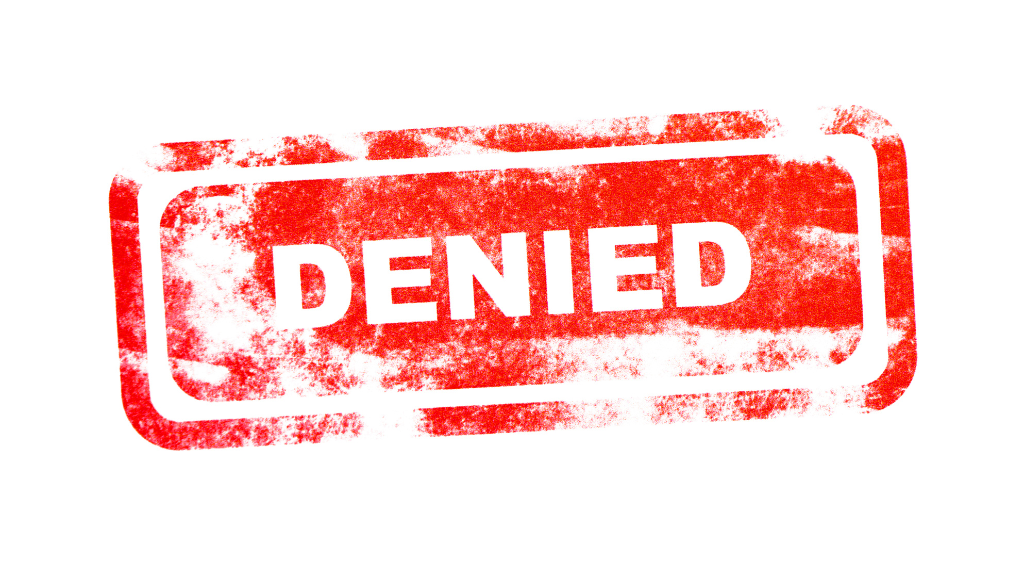Applying for a U.S. travel visa can feel overwhelming, especially when you’re not sure what to expect. Ultimately, the U.S. government decides whether to approve or deny your visa, and unfortunately, denials do happen. However, by avoiding common mistakes, you can improve your chances of approval. Here’s a breakdown of some common reasons people get denied and how to avoid them:
1. Errors on Your DS-160 Form
The first step in applying for a B-1/B-2 travel visa is filling out the DS-160 form (the Online Nonimmigrant Visa Application). It’s crucial to answer each question truthfully and accurately to avoid a denial due to incomplete information or misrepresentation. If you make a mistake or forget to answer a question, don’t panic! There are ways to edit your DS-160 form even after it’s been submitted.
2. Applying From a Third Country
It’s generally more difficult to apply for a travel visa from a country other than your home country. The denial rate tends to be higher for applicants applying from a “third country.” While it’s possible to overcome this challenge, the application process can be more complicated. If you must apply from a third country, make sure to gather extra supporting evidence and familiarize yourself with tips specific to this situation.
3. Applying From a Country With High Denial Rates
Some countries have higher travel visa denial rates than others. While it may be difficult to avoid a denial when applying from a high-risk country, strengthening your application with solid evidence and a detailed travel plan will improve your chances. Be sure to include everything that supports your intent to return home after you visit the U.S.
4. Failure to Provide a Clear Travel Itinerary
If you don’t present a clear, detailed travel itinerary, your visa application is more likely to be denied. Visa officers want to know why you’re traveling to the U.S., where you’ll stay, and how long you’ll be there. Be sure to have your travel details—like flight bookings and accommodation plans—ready to present when applying.
5. Financial Issues
Another common reason for visa denial is failing to prove you have enough financial resources to support yourself during your trip. Visa officers need to see that you have funds to cover all expenses, including airfare, accommodations, and any other travel-related costs. Prepare strong supporting documents like pay stubs, bank statements, and proof of assets to demonstrate your financial stability.
6. Failure to Prove Strong Ties to Home Country
One of the key factors in getting a travel visa approved is demonstrating strong ties to your home country. U.S. visa officers need to be convinced that you’ll return to your home country after your trip. If you can’t prove this, your chances of denial increase. Make sure you provide evidence like a stable job, family connections, property ownership, or any other factors that show you have a reason to return.
7. Previous Visa Denial
A past visa denial can make it harder to get approval for a new visa. If your application is denied, make sure to ask the visa officer for clarification on why. This feedback can help you avoid making the same mistakes in future applications. Use this opportunity to strengthen your case and address any issues that led to the denial.
8. Prior Immigration Violations
If you’ve violated U.S. immigration laws in the past—such as overstaying a visa—you may face a higher chance of being denied. Visa officers may assume that you’ll violate your new visa, especially if you have a history of “unlawful presence” in the U.S. Be aware of the consequences of past immigration violations and make sure to address them in your application.
9. Being Unprepared for the Visa Interview
The visa interview is the final step in the application process, and being unprepared can hurt your chances. Arriving late, failing to answer questions clearly, or misrepresenting yourself can lead to a denial. To avoid this, practice for the interview using sample questions and ensure you have all required documents ready. Our guide to the travel visa interview will help you prepare thoroughly.
10. Criminal History
Having a criminal record may affect your eligibility for a U.S. tourist visa, depending on the nature of the crime. Not all crimes automatically make you inadmissible, but a criminal history can complicate your application. In some cases, you may be eligible for a “Waiver of Inadmissibility,” which could increase your chances of visa approval. If you have a criminal history, it’s best to consult with an immigration attorney to discuss your options.
How Law and Visas Can Help?
At Law and Visas, our team of expert immigration consultants is here to make your travel to the US straightforward and successful. Whether you’re applying for a Green Card, Visitor Visa, or Study Visa, we handle every step, from preparing your application to gathering the required documents.
Our immigration Consultants and Lawyers ensure that your application meets the highest standards, with no details missed. We’ll also keep you informed throughout the process and coordinate with the immigration office or embassy on your behalf.
Law and Visas has a strong record of helping clients secure the visas/permits they need in the US. Call us today at +234 812 5505 986 to learn how we can assist you.





